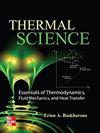通过优化闭环供应链中的产品回收,提高自动化空调的可持续性和性能
IF 1.1
4区 工程技术
Q4 THERMODYNAMICS
引用次数: 0
摘要
本文研究了使用闭环供应链(CLSC)来提高自动空调系统的可持续性和性能。随着自动化空调系统在汽车上的使用越来越多,即使在其使用寿命之后,也有必要对其效率进行分析和优化。为了可靠地预测自动空调系统的性能,该方法采用了一种基于支持向量机(SVM)的独特软计算技术。此外,研究重点是CLSC的部署,它允许最佳的产品回收和资源利用。为了优化多产品、多时间、多梯次网络,建立了一个广义的CLSC模型,考虑了成本、产品回收可能性、未知参数和环境性能。该研究揭示了逆向物流决策,如中心的安置和分配,以及供应商关系的培养。总体而言,本研究结合了CLSC和基于支持向量机的绩效预测方法,支持可持续制造实践。它强调了在空调系统的设计、制造和运行中资源效率、废物最小化和环境影响缓解的重要性。制造商不仅可以通过优化产品回收和利用闭环供应链来提高环境可持续性,还可以提高空调系统的性能和耐用性。本研究为行业利益相关者提供了实用信息,支持采用可持续实践,并为更可持续、更高效的制造业生态系统做出贡献。本文章由计算机程序翻译,如有差异,请以英文原文为准。
Enhancing sustainability and performance of automated air conditioners through optimizing product recovery in closed-loop supply chains
This article investigates the use of closed-loop supply chains (CLSC) to improve the sustainability and performance of automatic air conditioning systems. With the growing use of automated air conditioning systems in automobiles, it is necessary to analyze and optimize their efficiency even after their life span. To reliably anticipate the performance of automatic air conditioning systems, the suggested method employs a unique soft computing technology based on support vector machines (SVM). Furthermore, the research focuses on the deployment of CLSC, which allows for optimal product recovery and resource utilization. To optimize the multi-product, multi-time, multi-echelon network, a generalized CLSC model is built, considering costs, product recovery possibilities, unknown parameters, and environmental performance. The study sheds light on reverse logistics decision-making, such as centre placement and allocation, as well as cultivation of supplier relationships. Overall, this study's incorporation of CLSC and the SVM-based performance prediction approach supports sustainable manufacturing practices. It emphasizes the significance of resource efficiency, waste minimization, and environmental effect mitigation in air conditioning system design, manufacture, and operation. Manufacturers may increase not just their environmental sustainability but also the performance and durability of their air conditioning systems by optimizing product recovery and utilizing closed-loop supply chains. This study provides industry stakeholders with practical information, supporting the adoption of sustainable practices and contributing to a more sustainable and efficient manufacturing ecosystem.
求助全文
通过发布文献求助,成功后即可免费获取论文全文。
去求助
来源期刊

Thermal Science
工程技术-热力学
CiteScore
2.70
自引率
29.40%
发文量
399
审稿时长
5 months
期刊介绍:
The main aims of Thermal Science
to publish papers giving results of the fundamental and applied research in different, but closely connected fields:
fluid mechanics (mainly turbulent flows), heat transfer, mass transfer, combustion and chemical processes
in single, and specifically in multi-phase and multi-component flows
in high-temperature chemically reacting flows
processes present in thermal engineering, energy generating or consuming equipment, process and chemical engineering equipment and devices, ecological engineering,
The important characteristic of the journal is the orientation to the fundamental results of the investigations of different physical and chemical processes, always jointly present in real conditions, and their mutual influence. To publish papers written by experts from different fields: mechanical engineering, chemical engineering, fluid dynamics, thermodynamics and related fields. To inform international scientific community about the recent, and most prominent fundamental results achieved in the South-East European region, and particularly in Serbia, and - vice versa - to inform the scientific community from South-East European Region about recent fundamental and applied scientific achievements in developed countries, serving as a basis for technology development. To achieve international standards of the published papers, by the engagement of experts from different countries in the International Advisory board.
 求助内容:
求助内容: 应助结果提醒方式:
应助结果提醒方式:


